English
Writing
- Formal and informal letters
Reading Skills
- Read aloud using appropriate intonation, tone and volume
- Identify themes and conventions in a range of texts
- Identify and summarise the main ideas from a text.
Grammar / Punctuation / Spelling
- Use conjunctions, adverbs and prepositions to express time, cause & place
- Use a range of fronted adverbials
- Use the possessive apostrophe accurately with plurals.
Maths
Money
- Recognise and compare notes and coins
- Add and subtract amounts (and find change).
Time
- Tell the time to the minute
- Use a.m. and p.m.
- Solve problems with time.
Shape
- Recognise and compare angles
- Use language related to shape (horizontal, vertical, parallel, perpendicular)
- Recognise and describe 2-D and 3-D shapes
Science
Plant Nutrition and Reproduction
- To understand the life cycle of a flowering plant
- To identify parts of a flower
- To explain the process of pollination
- To understand the different methods of seed dispersal.
Computing
Programming(Scratch)
- Change and alter the pen settings (Scratch)
- Create and debug algorithms to draw patterns by repeating regular polygons (Scratch).
Online Safety
- To build on their knowledge of cyberbullying and how to deal with unkind behaviour online
- To know what information to keep private
- To begin to understand a digital footprint
History
Rocks, Relics and Rumbles
- To explain the physical processes that cause earthquakes.
- To describe how significant geographical activity can change a landscape
- To develop an understanding of tsunamis and their relationship to earthquakes
- To know how to stay safe during an earthquake.
Geography
- Use maps, atlases, globes to locate countries and describe features studied and locate countries.
- Use the eight points of a compass to locate a geographical feature or place on a map.
- Understand geographical similarities and differences through the study of human and physical geography.
Greek
Advanced: Reading: Identify and define new words in a text and write full responses to reading comprehension questions. Grammar: Use of the present tense, nouns and genders. Spelling: High frequency words and unit vocabulary, endings -ω,-ει. Writing: Create a poster. Beginners: Talking about things I do at home (House description+Daily routine tasks).
Greek Culture
Greek Mythology
- The stories of Hercules, Athena, Theseus and Perseus
Aesop’s Fables
- To introduce some of the most important fables from Aesop and discuss their moral lessons.
Music
- Singing simple melodies within a range of a 4th musical intervals
- Developing an ability to read musical notation, play a tuned percussion instrument and follow the tempo at the same time
- Singing songs of Pop culture
- Enriching the musical repertoire while singing and playing an instrument
Art & Design
Beautiful Botanicals
- To study plant drawings and patterns.
- To study the artist Georgia O’Keeffe
- Work in the style of a significant artist, architect, culture or designer.
PE
Outdoor & Adventurous activities
- Climbing, exploring, problem solving
- Working in pairs and small groups to overcome challenges
- Developing trust, communication, and teamwork
Swimming / Core aquatic skills
- Floating, gliding, submerging, breathing
- Building confidence and control in the water
- Learning stroke technique and basic water safety
PSHE
Health and Wellbeing – It’s My Body
This unit explores the choices children can make about looking after their bodies. The lessons look at making safer choices about their sleep, exercise, diet and hygiene.. Children will learn facts about each of these areas and learn strategies on how to manage them. The message of choice and consent runs through the unit and children are encouraged to get help from trusted adults when necessary.
Philosophy
We look at developing skills like critical and creative thinking, communication, empathy, and logical reasoning. Students learn to reflect on their beliefs, work collaboratively, and apply ethical concepts like fairness and justice to real-life situations. Students learn these skills through games, role play and mini projects.
How can you help at home?
- Establish a regular homework routine
- Listen to your child read as often as you can and ask questions
- Encourage your child to complete the AR test once they have read their book
- Help your child learn weekly spellings
- Practise (and learn by heart) the 4, 5, and 8 times tables.
